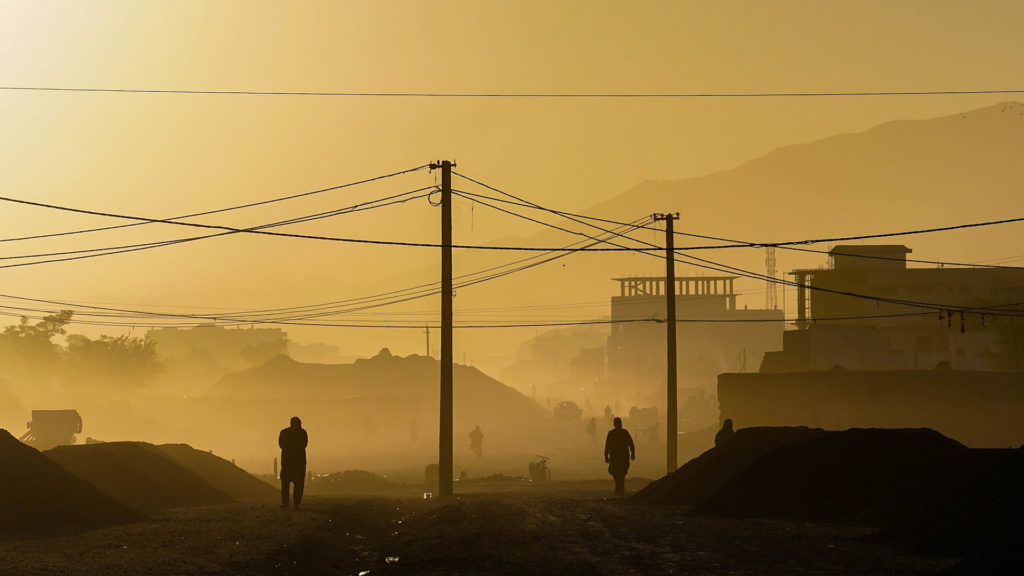by Doris Jukić
There are few years throughout the human history which are as significant as the 2021 has been. Most people in the world will know the years marking the beginning of World War 1 and 2, year in which America has been discovered or when European Union formed in a way we know it today. And even though 2021 is our very recent past, we can claim with reasonable certainty that it will be imbeded in our consciousness for a long time. Starting with the continuing danger of COVID 19 virus, storming of the American Capitol, severe weather troubles and serious threats to human rights, it has been a rather eventful year, to say at least. Among everything that happened in 2021, one event stands out for its significance in international relations and diplomacy: U.S. military withdrawal from Afghanistan on August 30, marking an end of a nearly two decades long conflict which resulted in deaths of over 100,000 Afghan and 2,500 American lives (Editors, 2022).
But, in order to get the accurate and meaningful analysis of the aftermath of this event, first we need to understand why and how the conflict even begun. It can be said that most discussions of an Afghan war consider the beginning of it to be the 9/11 attack, that is the American reaction on it. There are two reasons why the 9/11 attack is characterized as an event of extraordinary importance, namely the shock caused by the location and manner of the attack, as well as the large number of the civilian victims, but also the political goal of the attack itself. It showed how vulnerable the US really was when it was possible to carry out such an organized and fearsome undertaking on their own territory, in the middle of New York. The fear of the American citizens was incomparable to anything seen before, and they pinned all their hopes on the state leadership. But it was not only American citizens who were waiting for the reaction of the authorities, but also the entire international community, patiently waiting to see the way in which the United States will fight for its position in the world, and trying to decide how can they take part in the events that followed. After the terrorist organization Al Qaeda took responsibility for the attack on September 11th, the US authorities announced a “war on terror”, an international military campaign to prevent and destroy the fundamentalists Islamic organizations, including Al Qaeda itself, which included attacks on Iraq and Afghanistan.
One of the main characteristics of the Afghanistan conflict is the fact that it was an asymmetrical conflict, implying that one side is unable, due to its own weaknesses or the strength of the opponent, to oppose the other side in a conventional way. Therefore, the weaker side uses weapons and tactics in ways that are not planned or expected and that could disrupt or reduce the superiority of the opponent. Furthermore, it was not only an asymmetrical, but an asymmetrical rebel conflict, which can be confirmed by the analysis of the key factors defining asymmetrical conflict compared to the traditional notion of armed conflict: geography, population structure, ethnicity, political scene, role of the international community, outside support and rebel strategy (Brzica, 2012) . After the American intervention in Afghanistan in 2001, the international community and the new Afghan government first decided to reconstruct the country without the participation of major international organizations, relying on the bilateral assistance. At the request of Afghanistan officials, Germany has become the main authority in police reform and established a project office in Kabul to assist and coordinate other donors. That was going fine until 2006, when the international community recognized the complete change of the operational scenario with the US shifting their strategy from peace building to fighting the insurgency, recognizing that the Taliban movement has become a serious threat to the Afghan state-building process, which of course meant militarization of police reform (Sudar, 2021) . Today, after two decades of conflict, the main threat to Afghanistan people remain the Taliban movement, which has occupied the country as soon as the US troops left. On 14th of August 2021, US president Joe Biden suddenly announced the US military withdrawal from Afghanistan. In his speech, president Biden said that American mission in Afghanistan was never supposed to have been nation building and creating a unified, centralized democracy, but instead had just one goal: preventing a terrorist attack on American homeland (House, 2021) . If that was the only goal all along, was it really necessary to occupy another nation for 20 years, sacrifice countless lives and leave after nothing changed? US troops have killed Osama Bin Laden in 2011., could have they not leave Afghanistan then? They stayed because of the Taliban threat, and that threat is getting worse each day. Terrorism is something we all live with every day, knowing attacks are possible on our way to school or work and knowing that not much is being done to prevent them, at least in some more affected countries. United States of America are not expected to carry everyone’s problems on their back or to be some kind of a global police officer, but they can certainly level their influence to protect someone in a time when that someone has no influence whatsoever. US probably recognized that they have enough domestic problems to try to “fix” ones of the Afghan people, but living under Taliban regime is a punishment no one deserves in this day and age, and especially not people who just wanted one thing since 2001: their own peaceful and prosperous country.
